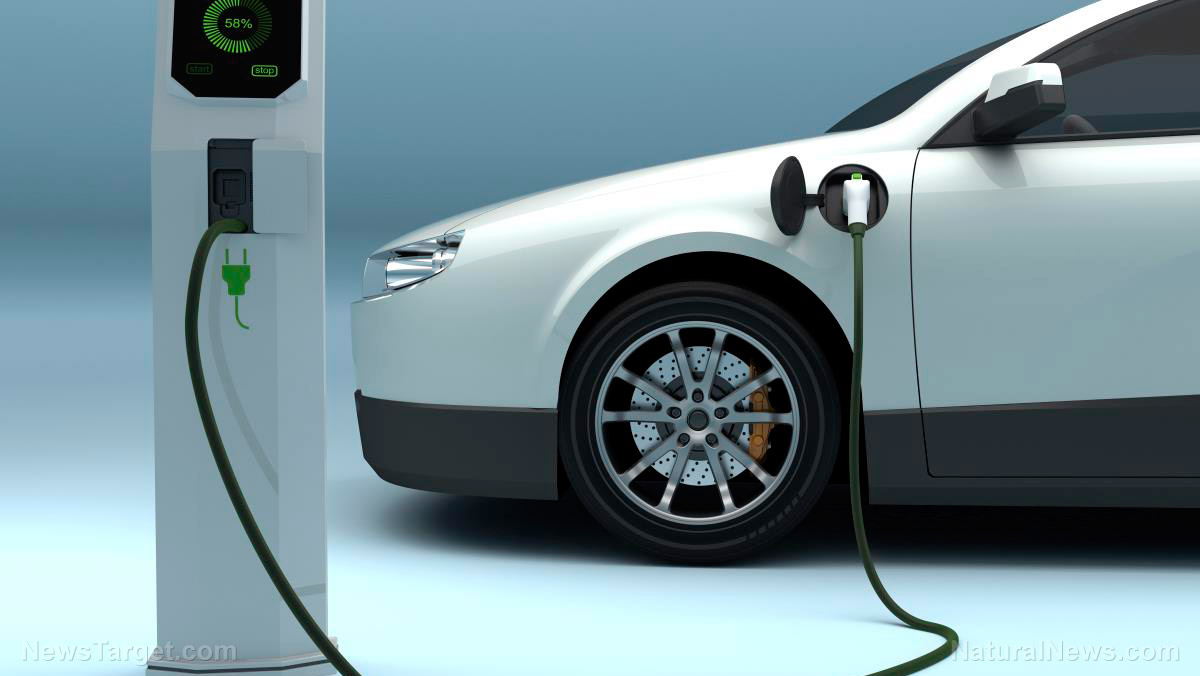Researchers develop method of boosting “ultracapacitors” for extra fast charging times on all electronic devices
03/29/2018 / By David Williams

As the search for better energy storage solutions continues, a group of researchers from the U.K. has revealed that they may have come upon a major breakthrough that could lead to seconds-long charging times for smartphones or minutes-long charge times for future electric cars. The secret, according to the researchers, lies in boosting the performance of carbon-based supercapacitors that are already in use in the real world.
In case you didn’t know, supercapacitors – which are sometimes referred to as ultracapacitors – are a type of energy storage device that has the ability to charge up very quickly and also discharge just as fast. Unlike current standard batteries and other types of energy storage devices, they don’t produce electricity with the use of chemical reactions. Instead, they create electrostatic fields.
According to Dr. Donald Highgate, the director of research at Superdielectrics Ltd., a material that was originally developed for soft contact lenses showed a surprising ability to hold electrostatic fields. As such, he tapped both Bristol and Surrey universities in order to develop supercapacitor technology with this new polymer material, and he hopes for it to eventually reach the same level as lithium-ion batteries – or perhaps even surpass it.
At the moment, the researchers have already created a working prototype. But they are looking to replicate its performance on a large scale to measure its potential as a future ultracapacitor technology.
A report on this development brings up some of the known strengths of supercapacitors. For starters, they are known to be good at providing quick but short bursts of power. For instance, they can be good for starting car engines, or for giving trains a momentary boost when they are beginning to accelerate. They can also be useful for capturing energy from cars or other vehicles when they hit the brakes, which is why they deserve a place in all modern electric vehicles. (Related: Researchers have designed a new solar device that may finally make hydrogen cars a reality).
The researchers view supercapacitor technology as having incredible potential for further improving current energy storage solutions. The biggest problem with them right now is their failure to hold much energy or to hold onto energy for very long, which is what needs to be fixed.
According to Gareth Hinds, Fellow of the U.K.’s National Physical Laboratory, the benefits of using supercapacitors over the usual energy storage options are abundantly clear. “The two main advantages of conventional supercapacitors over batteries are their ability to handle much higher charge and discharge rates, and their longer cycle life,” he explained.
“The downside is that they tend to be relatively high cost and can only store a few seconds-, or at most, minutes-worth of energy.”
The researchers are confident that their new technology could help push greater adoption of electric vehicles as soon as it becomes available. Referring to supercapacitor buses which are already in use in China, the researchers mention that instead of recharging every two to three stops, they could go on and on and only need to recharge every 20-30 stops with their new technology. And recharging would only take a few seconds, at that.
According to Jim Heathcote, the Chief Executive Officer of Augmented Optics Ltd., and Supercapacitor Materials Ltd., success with this new technology is on the horizon. “The test results from the new polymers suggest that extremely high energy density supercapacitors could be constructed in the very new future,” he said.
“We are now actively seeking commercial partners in order to supply our polymers and offer assistance to build these ultra-high energy density storage devices.”
For now, research on this exciting new battery technology continues. But it will only be a matter of time before it arrives, and the world will see whether or not it can truly live up to the hype.
Find out more energy storage innovations in Power.news.
Sources include:
Tagged Under: batteries, battery, battery technology, contact lenses, electric cars, electric vehicles, electronics, energy storage technology, future tech, inventions, polymers, supercapacitors, Ultracapacitors
RECENT NEWS & ARTICLES
COPYRIGHT © 2017 COMPUTING NEWS




















